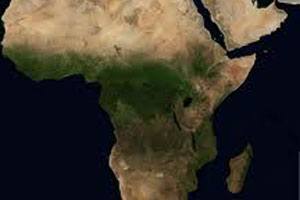
Africa’s liberation movements have dismally failed to deliver on their promises because they were simply unrealistic and unachievable.
Report by Vince Musewe
The liberation movements promised political freedom to the masses; in addition to that, they assured that the masses would own the means of production and the natural resources of their countries. They actively condemned capitalism as the source of all evil and promised to create more equitable and just societies, with the black African at the centre stage.
Almost all have dismally failed to deliver on their promises because they were simply unrealistic and unattainable. Instead, our so-called liberators have become the true capitalists, who do not only control political power, which they continue to hold onto, but have also accumulated considerable personal wealth through corruption and pillage. The cry for economic freedom by the ordinary African citizen has become an inconvenient irritation, to be soothed and hopefully contained by empty sounding political rhetoric.
Post-independent Africa has clearly failed to deliver. As I watch events unfolding in South Africa, I am not surprised at all that the masses have run out of patience, and are taking matters into their own hands. It appears to me that traditional trade unions are fast-becoming irrelevant platforms to address what are fundamentally structural economic problems.
The situation is certainly going to get worse, as the realisation dawns on most that, sustainable economic transformation is not about higher wages, better work conditions or higher social grants, these are temporary. We need significant shifts in the structure of African economies: from raw capitalism, which is characterised by incessant accumulation of economic power by a few, to a more equitable economic welfare system that seeks to deliberately expunge mass poverty.
Most post-independent African states have failed to shift their economies in that direction because of weak political leadership that simply adopted the colonial capitalist state, because it was convenient and less painful. They pursued the safest route of preserving the capitalist regimes of pre-independent Africa, by getting a few blacks to graduate into owners of capital without fundamentally changing the economic system.
What this has done, is to create a black elite, keen on preserving an exclusive resource ownership regime. The masses are wondering what could have happened to the promised economic freedom.
- Chamisa under fire over US$120K donation
- Mavhunga puts DeMbare into Chibuku quarterfinals
- Pension funds bet on Cabora Bassa oilfields
- Councils defy govt fire tender directive
Keep Reading
This has been the experience in Zimbabwe for example, hence 32 years later; we are still talking about indigenising the economy. This, besides having already taken over vast agricultural resources of the country. Unfortunately, this will not work because it lacks credibility and vision. Our politicians and the top military brass have carved out for themselves lucrative sectors of the economy and are effectively running a parallel economy, to the benefit of a few.
The masses are expected to irk out a living while remaining at the fringes of the economy. South Africa has done no better; the poor have become more marginalised as we see a rapacious black capitalist class emerging. These black elite are far removed from realities of shack dwellers and underpaid miners who are now fighting for economic freedom. The chickens are coming home to roost.
I do not think that, as long as we pursue the capitalist model of production, we are going to see meaningful economic freedom in Africa as articulated by South Africa’s “economic freedom fighters”. Capitalism favours those that have and penalises those who supply labour and those who aspire to enter the market. It also favours the proliferation of international conglomerates in the form of monopolies and oligopolies, whose brands and products have become the new colonisers. The black capitalists have partnered with international conglomerates to entrench in development projects, thus further entrenching the skewed ownership structures. You must appreciate that, the international capitalist model has Africa at its fringes, providing raw material, as was the case during colonial times. It has Africa receiving aid to address its social problems while providing a huge consumer base for its technology and consumer goods. The Chinese have mastered this and are, as we speak, extracting significant wealth from Africa. We have been duped.
As far as I see it, we need to have this conversation in Zimbabwe. It is imperative that we have new conversations on how we can create a new economic system rather than merely reviving and strengthening the post-independence capitalist base. As we try to revive the economy, it is critical that we address the fundamental inappropriateness of capitalism as a tool for the democratisation of economic power.











